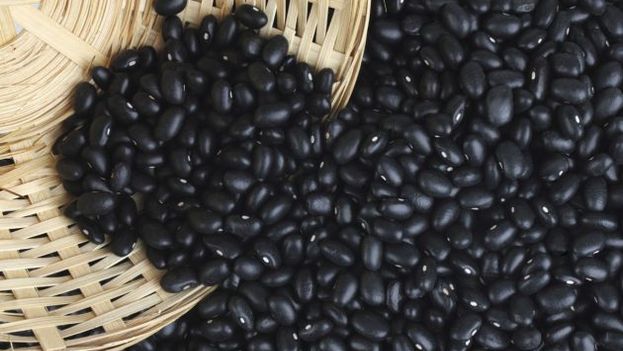
![]() 14ymedio, Generation Y, Yoani Sanchez, 31 December 2015 – Tiny and tasty, they seem to look at us from the plate and mock the work it takes to get them. Beans are not only a part of our traditional cuisine, they constitute an effective indicator to calculate the cost of living in Cuba. The price increases these delicious little bits have experienced in the past year is proof of the disastrous economic policy promoted by Raul Castro.
14ymedio, Generation Y, Yoani Sanchez, 31 December 2015 – Tiny and tasty, they seem to look at us from the plate and mock the work it takes to get them. Beans are not only a part of our traditional cuisine, they constitute an effective indicator to calculate the cost of living in Cuba. The price increases these delicious little bits have experienced in the past year is proof of the disastrous economic policy promoted by Raul Castro.
When, in February of 2008, the former Minister of the Armed Forces assumed the presidency of the country, many were betting on the pragmatic character of his mandate. His sympathizers never stopped reminding us of the phrase in which he asserted, “Beans are more important than canons.” They predicted that our national agriculture would work like certain farms managed by the Ministry of the Armed Forces and the Youth Labor Army.
Hopes that overlooked José Martí’s accurate maxim, “A nation is not founded like a military camp is commanded.” The behavior of a soldier in the trenches can never be equated with a farmer’s day, and an officer’s command to bend one’s back over the earth has nothing in common with the efforts of a peasant to hire someone to bring in his harvest.
The harangues against the invasive marabou weed, launched by Raul Castro in his first years as president, fueled expectations, as did his call to put a glass of milk on every Cuban’s breakfast table. The Raulistas discerned in those statements the soaring of food production and the bringing down to earth of prices, to be consistent with wages. But neither occurred.
Instead, in recent months consumers have suffered a significant increase in the cost of agricultural products. If the year started with a pound of black beans costing between 12 and 15 Cuban pesos, at the close of December the price varied between 15 and 20 pesos – the wages of an entire working day – reaching the staggering price of 30 pesos in the case of garbanzo beans.
Meanwhile, the average monthly wages in the country only grew from 581 to 640 Cuban pesos (roughly $25 US), a symbolic increase which, expressed in a worker’s purchasing power, equals about three more pounds of beans a month. The results Raul Castro has achieved with his much-vaunted methods are not far removed from the little his brother Fidel Castro achieved with his grandiose agricultural and livestock projects.
The usufruct leasing of land to farmers ran up against the bureaucracy, excessive controls and the poor state of the leased land. El Trigal, the experimental wholesale market, is a sequence of empty stalls, petulant bananas and high prices. In reality, it is easier to find an apple brought from thousands of miles away than an orange or chiromoya planted in our own fields. For the coming year, the country will spend 1.94 billion dollars on food imports, and nobody even talks about the battle against the invasive marabou weed any more.
“I have to earn my beans,” says a teacher, as he justifies dedicating his workday to cooking pork, along with a portion of“Moors and Christians”– as we call black beans and rice – that he sells illegally to the workers at a hospital. Because yes, our lives revolve, rise and fall around those delicious little bits that we long to put on our plates. Expensive and tasty, they are the best indicator of the General’s failure.
